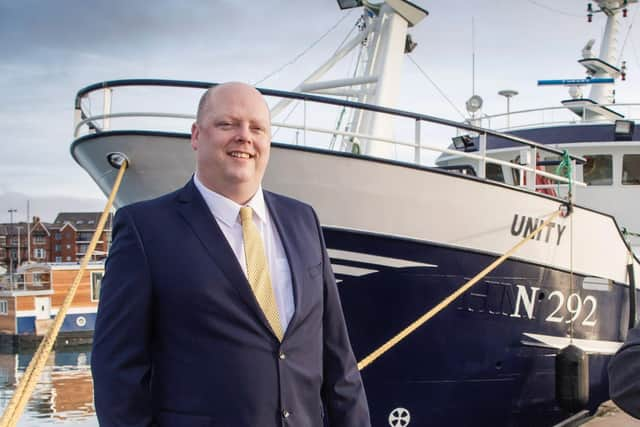Northern Ireland Protocol: Windsor Framework still requires NI fishing fleet to submit to strict EU red tape - like foreign vessels in their own ports - and EU promise not to enforce rules won't last says NIFPO
and live on Freeview channel 276
Harry Wick, CEO of the The NI Ireland Fish Producers’ Organisation, says the NI Protocol and its successor the Windsor Framework both treat NI trawlers as foreign vessels when they return to port.
The potential burden of EU veterinary checks on all their catches and EU paperwork treating them as foreign vessels in their own ports could have a major impact on the industry, he says.
Advertisement
Hide AdAdvertisement
Hide Ad"NIFPO represents fishermen from all corners of NI's community and as such we don't get involved in party politics," Mr Wick told the News Letter.


"However there has been nothing identifiable in the Windsor Framework that cuts any of our Protocol red tape or eases any of our third country concerns.”
He previously raised concerns about the Protocol in the News Letter in 2021.
The issue was highlighted again recently by Kilkeel TUV councillor Harold McKee. He told the News Letter it was “intolerable that, though disguised by the grace periods, the Kilkeel fleet, under the Northern Ireland Protocol, should not be allowed to land their catches in their own port without being treated as foreign vessels and having to complete paperwork and submit veterinary certificates - The Windsor Framework has not addressed this.”
Advertisement
Hide AdAdvertisement
Hide AdThe UK Department for Environment, Food & Rural Affairs (DEFEA) responded with a statement that appeared to refute the claims. It said: “The Windsor Framework protects the economic rights of the people of Northern Ireland and provides us with the basis to move forward together as one united country. There is no change to the requirements that apply regarding the landing of vessels into ports in Northern Ireland. We do not apply third country requirements to Northern Irish fishers landing in their own ports.”
However, according to Mr Wick, what the DEFRA statement did not mention is that the EU requirements on NI fishermen are already in place - the EU is just not enforcing them.
Mr Wick said: "I've been told by the people who were in the room during the Windsor Framework negotiations that the UK tried to have this resolved so that NI vessels wouldn't have been treated the same as those from a third country. The EU wouldn't budge on the matter, citing the integrity of the EU customs union. They did however offer a gentleman's agreement that they would not enforce the third country rules.
"The problem we have is that they wouldn't commit that to writing and as we all know, a gentleman's agreement is only binding for as long as it suits them. What happens in a couple of years when the personnel on the EU's side have changed? Will they feel bound by this agreement?"
Advertisement
Hide AdAdvertisement
Hide AdHe says the history of fishing quota negotiations means this is unlikely.
The other major concern with the WF it does "absolutely nothing" to relieve the administrative burden of moving fish from GB to NI for processing, which has long been a major part of the local industry.
The European Commission has not offered any response.